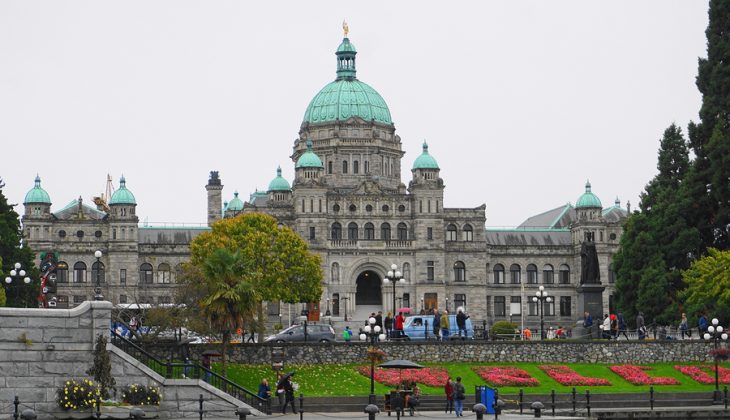
By Denis Carmel
VICTORIA – British Columbia last week followed Québec and Saskatchewan in announcing out of province digital companies will have to collect provincial sales taxes.
In its 2020 Budget, British Columbia introduced a new measure requiring foreign online vendors making more than $10,000 (like Amazon, Facebook and Netflix) to register with the province and charge the 7% PST to its customers. The measure will be implemented on July 1, 2020.
This measure is expected to raise $11 million next year and $16 million the following year.
The total of the B.C. government budget is forecasted at $60.6 billion in 2020-21.
“This is making sure that it’s a level playing field for everyone,” Finance Minister Carole James said in an exchange with reporters Wednesday. “Some are paying right now, others aren’t. We need to make sure that there’s fairness for businesses.”
Vendors were always subject to sales tax but there were ambiguities. Both Saskatchewan and Québec changed the wording of their legislation over the past 36 months so that online vendors were now required to register. As Jeff Welke, the executive director of communications in the Saskatchewan Ministry of Finance said: “As a result, Saskatchewan made some small amendments to the PST Act in 2017 to modernize the language and clarify that non-resident businesses selling taxable goods and services into Saskatchewan are required to be licenced and collect PST. This enables the Province to maintain a level playing field for Saskatchewan businesses and sustain the province’s revenue base.”
As of January 2020, 513 companies outside of Québec have registered with Revenu Québec and they have collected $100 million in sales taxes in 2019, which almost quadrupled the initial predictions of $28 million.
The B.C. budget speech also contained the usual broadband expansion programs: “We are close to bringing our 500th connected community online. This means a digital world of opportunity is now open to people in Deka Lake, Clinton, Tofino, and Haida Gwaii,” Carol James said.
As well, $52 million has been budgeted for the Interactive digital media tax credit and $129 million for the Film Incentive Tax Credit as they continue to be offered.
With a third province joining the movement to collect sales taxes from online providers, maybe the Federal Government will move before the OECD moves, since everybody who sells is supposed to collect and remit sales taxes.


